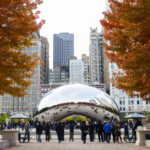Nelson Street in Greenville, Mississippi, was once the thriving epicenter of African American commerce and entertainment within the Delta region. This bustling street was a hub of activity, brimming with nightclubs, lively cafes, essential groceries, bustling fish markets, barbershops, laundromats, and record stores, alongside a variety of other enterprises that contributed to its vibrant atmosphere. Nelson Street was particularly renowned for its electric blues clubs, including legendary venues like the Casablanca, the Flowing Fountain, and the Playboy Club, which drew crowds and performers alike. The street’s significance was even immortalized in song with Willie Love’s 1951 track, “Nelson Street Blues,” a testament to its cultural impact.
Unlike many towns in the Delta that quieted down early each evening, Greenville boasted a dynamic nightlife, especially during the 1940s and 1950s, and Nelson Street was at the very heart of this energy. Blues musicians and enthusiasts from across the region were drawn to the vibrant cafes, lively pool halls, and pulsating nightclubs that lined Nelson Street. The music scene was diverse, ranging from the raw, emotive sounds of Delta blues to the energetic rhythms of big band jump blues and smooth jazz. Notably, even before achieving national fame as a leading African American recording artist, Louis Jordan graced Nelson Street with his talent, joining local bandleader and music educator Winchester Davis for performances as early as 1928. This early connection highlights Nelson Street’s long-standing importance in the development of American music.
The early 1950s marked a peak in the commercial success of down-home Southern blues within the American rhythm and blues industry, and record labels soon recognized Nelson Street as a fertile ground for talent. Leading figures in the local blues scene, such as Willie Love and Sonny Boy Williamson II, both signed with the Jackson-based Trumpet record label, further cementing Nelson Street’s reputation. In 1952, the Casablanca restaurant and lounge located at 1102 Nelson Street, an upscale establishment that famously advertised “For Colored Only,” became a recording venue for Charlie Booker and other artists for the rival Modern Records. During one memorable recording session, a dramatic interruption occurred when the local sheriff, acting on behalf of Trumpet Records, ordered the session to halt, claiming the artists were under contract elsewhere. The ensuing legal battle made headlines in national music industry publications, underscoring the high stakes and competitive nature of the blues music business centered around Nelson Street.
Charlie Booker’s “No Ridin’ Blues,” one of the tracks recorded at the Casablanca, quickly became an anthem alongside Willie Love’s “Nelson Street Blues.” Booker’s lyrics, “Greenville’s smokin’, Leland’s burnin’ down,” captured the spirit of the Delta blues scene and Nelson Street’s central place within it. Booker, Love, and Little Milton Campbell were among the prominent blues artists who further amplified their reach by hosting their own radio shows on local stations WGVM and WJPR. Later, disc jockey Rocking Eddie Williams contributed to the street’s musical ecosystem by opening a record store on Nelson Street. Other significant blues venues that contributed to the street’s vibrant 1950s scene included Henry T’s Pool Room, the Silver Dollar Cafe, and the Blue Note, each adding to the rich tapestry of Nelson Street’s entertainment offerings.
The legacy of Nelson Street extends beyond its venues, as it served as a launchpad for numerous influential musicians. Nelson Street alumni include Oliver Sain, Eddie Shaw, J.W. “Big Moose” Walker, Burgess Gardner, Lil’ Bill Wallace, Roosevelt “Booba” Barnes, Willie Foster, T-Model Ford, John Horton, and Lil’ Dave Thompson, showcasing the breadth of talent nurtured on this single street. Even Greenville’s first African American police officer, guitarist Willie “Burl” Carson, had ties to this vibrant community. Among these accomplished individuals, Little Milton achieved the greatest commercial success and paid homage to the Flowing Fountain, a celebrated Nelson Street show club, in his 1987 Malaco Records hit “Annie Mae’s Cafe.” Nelson Street stands as a powerful symbol of a dynamic era in American music and African American cultural history in the Mississippi Delta.
content © Mississippi Blues Commission
[ BACK TO TOP ]


